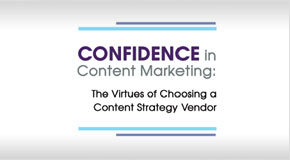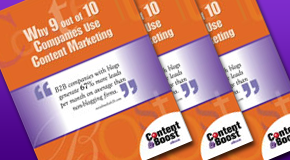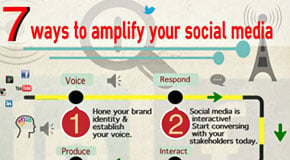Listen up marketers; consumers have grown averse to traditional advertising. In fact, fewer than 25 percent of U.S. online consumers trust ads in print publications, and the numbers bode even worse for digital media. Today’s consumers—in particular millennials who are skeptical about the ways in which brands market to them—value companies that display honesty and authenticity as evidenced by new studies issued by Mindshare North American and Cohn & Wolfe.
.jpg)
According to research from Mindshare North American, trustworthiness and authenticity are two of the top five attributes millennials look for in brands. Consumers want open and transparent communications from companies and they’re willing to pay for it. Complimenting research from Cohn & Wolfe found that 63 percent of consumers surveyed across 12 global markets would buy from a company they consider to be authentic over and above its competitors. What’s more, 6 in 10 would recommend an authentic organization to family and friends.
So how can companies go about building trust and sharing their unique message with consumers without coming across as inauthentic and too “salesy”? Two words: content marketing.
Content marketing helps promote your brand’s products and services in a more engaging way, but more importantly it helps build a foundation of trust and credibility with consumers. By sharing a steady flow of valuable content related to your industry and buyers’ needs, you will slowly start to encourage people to trust you as an authority and helpful resource. Below are three tips to keep in mind when creating content that builds trust:
1. Focus on quality: Unfortunately, companies become so focused on churning out content that they let the quality of their work suffer. But the second your content gets sloppy, readers will notice and quickly move on. To ensure that you maintain a healthy balance of quality and quantity, create an editorial calendar and a content checklist that will help keep you on track. Check out my article, “The Ultimate Blogging Checklist for Marketers,” for important things to look for before publishing.
2. Remove the “I”: Stop creating content that reads like a sales pitch; consumers can smell in-authenticity from a mile away. Instead, analyze your audience and develop content that’s both relevant and educational. Doing so will demonstrate to your audience that you’re keeping them top of mind and want to help solve their problems.
3. Humanize content: Content shouldn’t read like a manual. Remember, your consumers are human just like you. Aim to build a connection with your reader on a personal level by creating content that’s relatable. Ditch the complex jargon and use common language that your consumers understand.
The truth is campaigns alone just won't cut it anymore—no matter how good they are. Through content marketing, you can start to build a strong foundation of trust and credibility with your audience, while at the same time promoting your products and services in a non-intrusive way.
To learn more content marketing tips and tricks, subscribe to our free eNewsletter!















